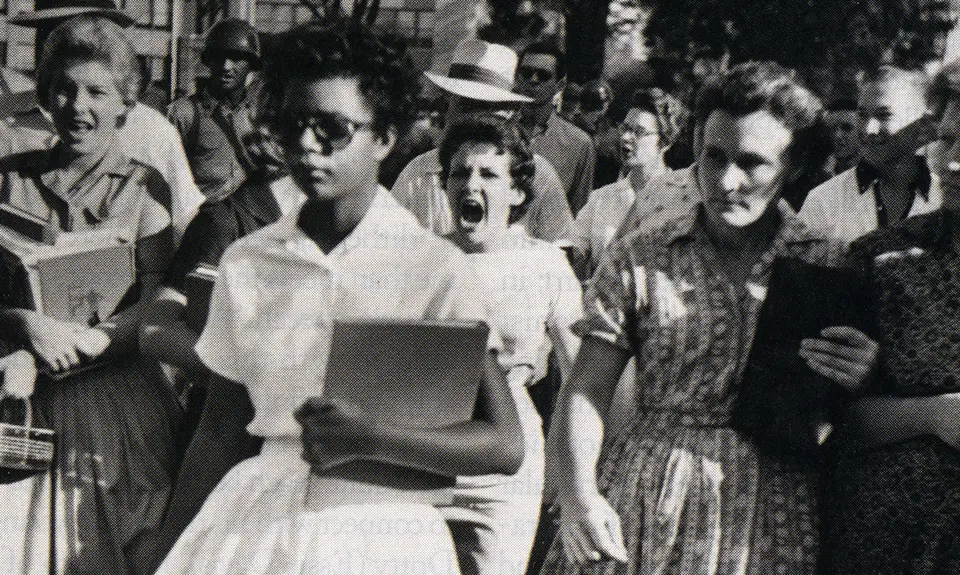First published in The Hill.
For a Northerner like me, coming to live in Washington, D.C. has been eye-opening in many ways. One of these has been living right across the river from Virginia, which up until very recently had a staggering number of public Confederate artifacts.
Even in Blue Northern Virginia, you couldn’t turn a corner without running into a building or a road named after Robert E. Lee.
Then, in the last couple of years, many were renamed. On some building facades, you can still see the shadows of old letters, where “Lee” has been torn down to make way for new names that won’t be a gut punch to every person of color walking by.
It was genuinely encouraging to see so much change happen in a short time, after decades of resistance. Public Confederate monuments don’t just remind Black Americans of a painful history, they send a message that the powers that be don’t notice or care about that impact. And most were created decades after the Civil War — more to push back against Black Americans’ progress than to commemorate any war “hero.”
So when a Virginia school district voted this month to restore the names of Lee and other Confederates to two schools, it hurt.
That it happened just days before the 70th anniversary of the Supreme Court’s landmark decision in Brown v. Board of Education hurt even more. So did new findings that there is more de facto school segregation in America today than there has been for years, due to factors including “white flight” from urban districts.
And of course, there was the Supreme Court’s decision last year undermining race-based affirmative action.
We’ve always had to guard against backsliding from major civil rights victories. But that seems truer now than ever.
The widespread public commitment to naming and fighting systemic racism, so urgent after the killing of George Floyd and other Black Americans, just isn’t as pronounced anymore.
Combine that with a constant drumbeat of attacks from the far right on voting rights and schoolbooks that address social injustice, and we’re courting tragedy.
So this is a good time to remind ourselves how much Brown changed this country, and how much we don’t want to backslide.
Brown meant a lot more to our society than ending state-mandated school segregation. It cracked open doors not just to the schoolhouse but to the statehouse, the courthouse, the White House and virtually every other professional and personal opportunity.
It established that values of diversity, racial justice and non-discrimination should be embedded in American life.
Speaking for myself, I know that Brown made it possible for me to have the life I have today. In many ways, I owe all that I have to the Black lawyer, Thurgood Marshall, who argued the case at the Supreme Court before becoming a justice himself.
I know we’ve never completely fulfilled the promise of Brown. But we have to rededicate ourselves to trying.
And the same federal court system that gave us Brown in the first place has to be on the front lines in that effort.
If that sounds unlikely with a Trump-packed Supreme Court, remember that the overwhelming majority of cases are decided in lower courts. That’s where an increasing number of federal judges nominated by President Biden quietly hold the line against discrimination and injustice.
These judges are people like Toby Heytens in the Fourth Circuit. Judge Heytens cast the deciding vote to uphold an admissions policy promoting diversity at Thomas Jefferson High School, a nationally recognized magnet school in Virginia.
They include judges like Dana Douglas in the Fifth Circuit, who ruled that a resident could sue the Postal Service because postal workers who allegedly didn’t want to serve a Black property owner refused to deliver her mail. Believe it or not, a lower-court judge appointed by Trump had held otherwise.
It’s incredible that cases like these still happen today. And one of the biggest achievements of the Biden administration and Democratic Senate leadership has been the confirmation of judges who are committed to combating this kind of discrimination.
A historic number of Biden judges are people of color: nearly two-thirds. We know the educational opportunities created by Brown made this possible by diversifying the legal profession. And it will continue to pay dividends through the years, as a more diverse judiciary enhances the quality of justice Americans experience.
So, my wish on this 70th anniversary is that we keep building a stronger federal bench. That every federal judge and justice be dedicated to upholding Brown’s promise. That we have judges committed to ensuring that enemies of our civil rights do not break our laws.
Even if, sometimes, they still break our hearts.
